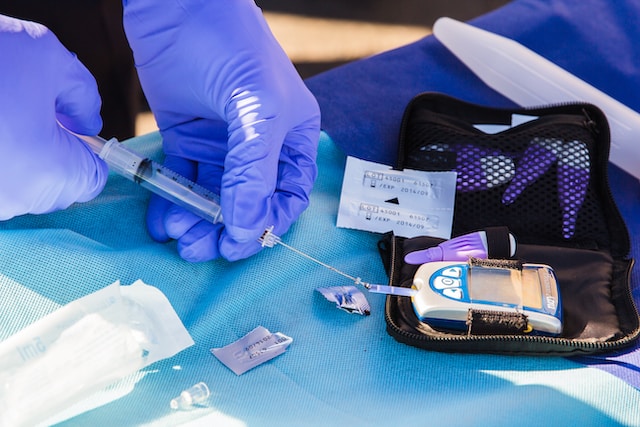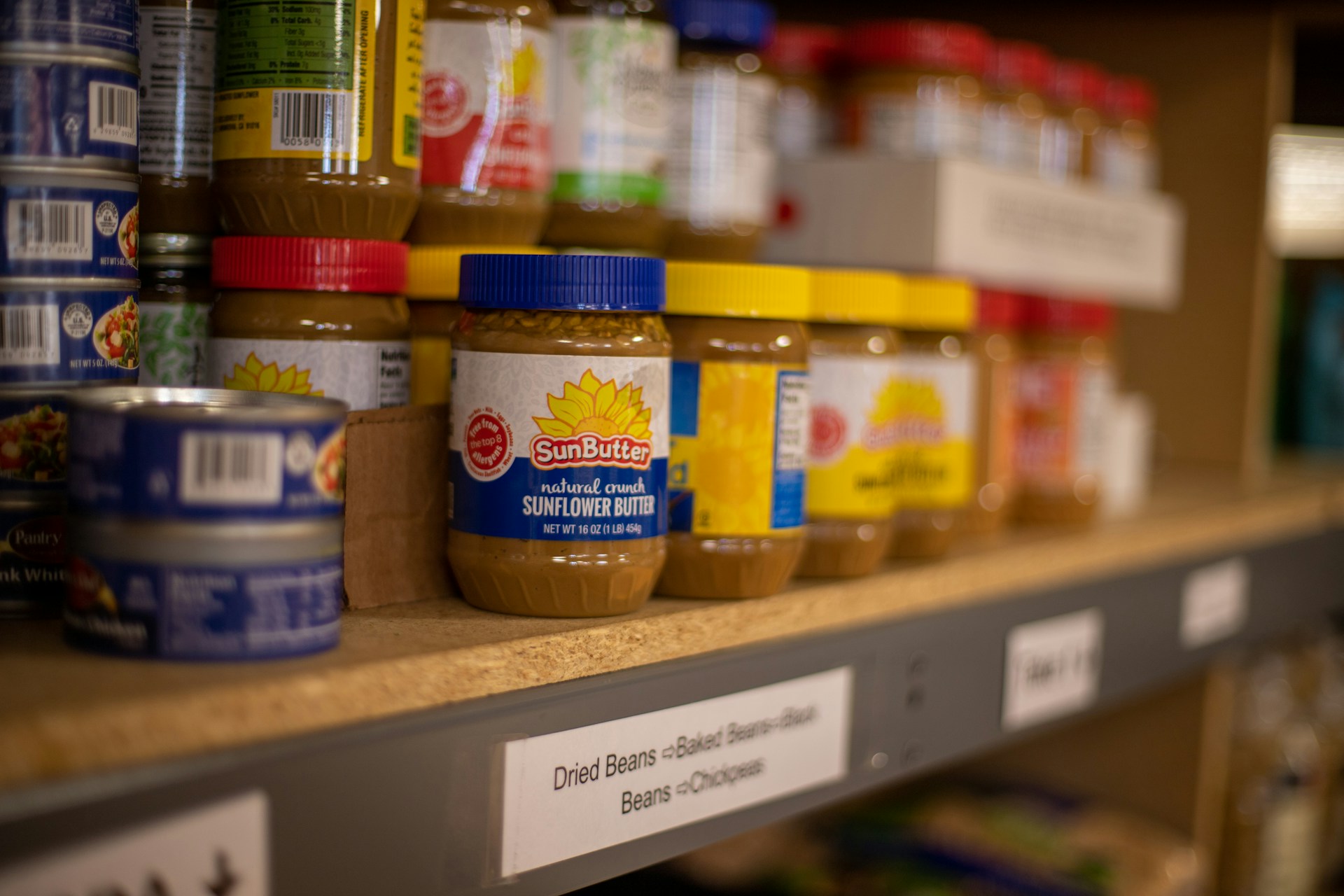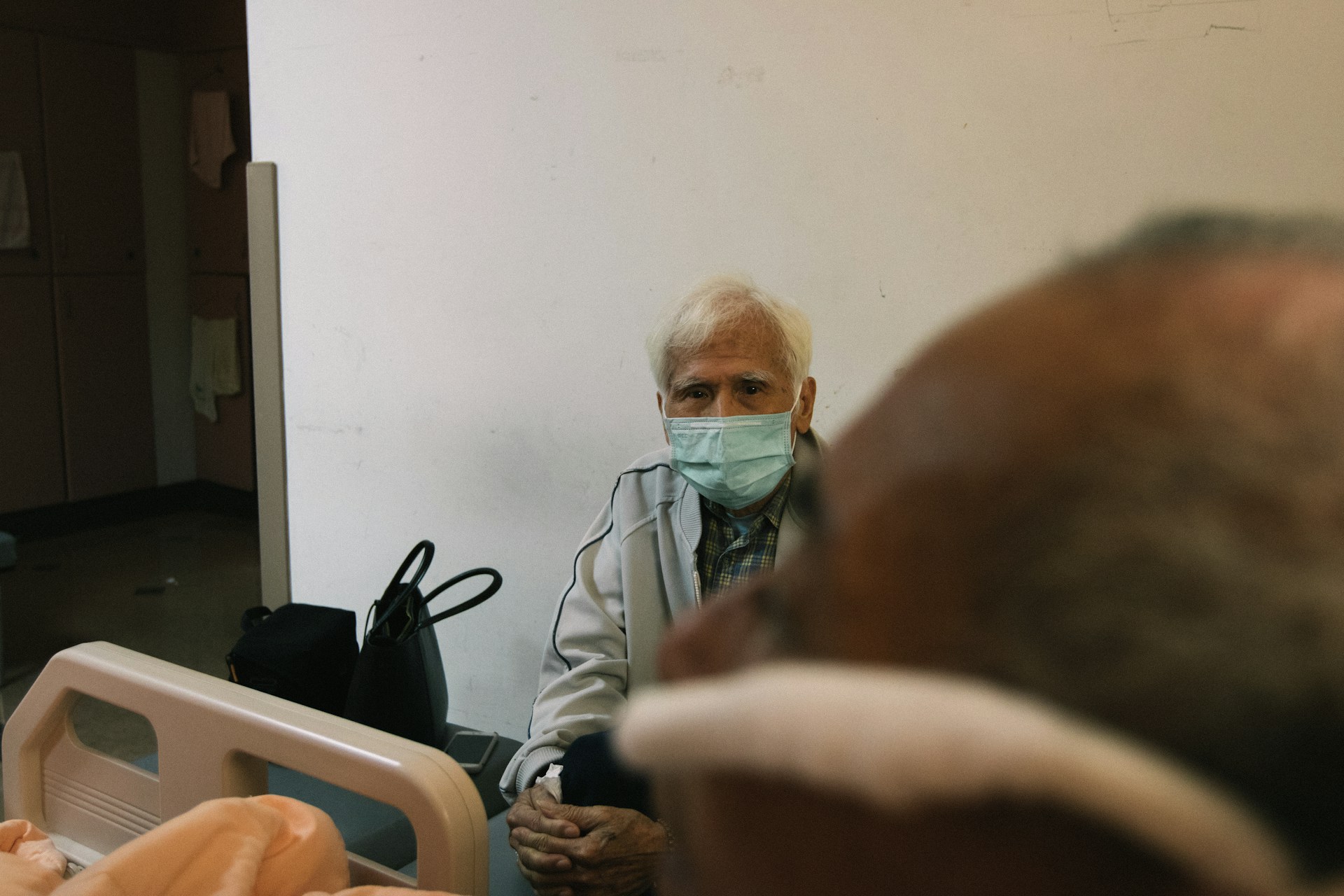The Correlation between Diet Quality with Glycemic Status in Patients with Diabetes Mellitus Type 2
Hubungan Kualitas Diet dengan Kadar Glukosa Darah pada Pasien Diabetes Mellitus Tipe 2 di Kota Yogyakarta

Downloads
Background: Diet quality is an important component in blood sugar regulation. Effective blood sugar regulation can effectively reduce the risk of developing additional complications and chronic diseases. The number of people suffering from type 2 diabetes mellitus (T2DM) in Yogyakarta City, Special Region of Yogyakarta (DIY) in 2021 will be 10,635 people and in 2022 it will be 15,588 people.
Objectives: This study aims to determine the correlation between diet quality and blood glucose levels in Type 2 Diabetes Mellitus patients living in Yogyakarta, Indonesia.
Methods: This research applied a cross-sectional design and is an analytical observational study. Purposive sampling was used to select participants, resulting in a sample size of 63 individuals. Blood glucose levels obtained from secondary sources at the Community Health Center were used as the dependent variable. The Diet Quality Index-International Questionnaire (DQI-I Q) and the Semi-Qualitative Food Frequency Questionnaire (SQ-FFQ) were used to assess the independent variables of food quality. The data was statistically analyzed using STATA version 14 and the Chi-Square test.
Results: 35.38% of respondents who reported eating healthy food had normal blood glucose levels (current blood glucose levels below 200 mg/dL), while 12.3% of respondents who reported eating poor food reported hyperglycemic blood glucose levels (current blood glucose levels exceeding 200 mg/dL). In T2DM patients, there was no association between dietary quality and blood glucose levels (p-value=0.397). However, correlations could be observed between blood glucose levels and DQI-I variation components (p-value=0.000) and overall balance (p-value=0.018).
Conclusions: In contrast to transient blood glucose levels, the overall component of variation and balance was related to diet quality.
Silalahi, L. Hubungan Pengetahuan dan Tindakan Pencegahan Diabetes Mellitus Tipe 2. J. PROMKES 7, 223 (2019).
Krisnansari, D., Ernawati, D. A., Harini, I. M. & Sari, O. P. Hubungan Kualitas Diet Dengan Glukosa Darah Puasa dan Kolesterol Total Pada Pasien Diabetes Melitus Tipe II di Puskesmas 2 Sumbang Banyumas. Pros. Semin. Nas. LPPM Unsoed 11, (2022).
Kemenkes RI. Hasil Riset Kesehatan Dasar Tahun 2018. Kementrian Kesehat. RI 53, 1689–1699 (2018).
Opelya, N. M. W., Sucipto, A., Damayanti, S. & Fadlilah, S. Hubungan Aktivitas Fisik dengan Tingkat Stres pada Pasien Diabetes Melitus di Puskesmas Gondokusuman 1 Kota Yogyakarta. J. Ilm. Keperawatan IMELDA 6, 178–187 (2020).
Dinkes Kota Yogyakarta. Profil Dinas Kesehatan Kota Yogyakarta tahun 2020. Profil Dinas Kesehat. Kota Yogyakarta tahun 2019 1–234 (2020).
Dinkes Kota Yogyakarta. Profil Kesehatan Kota Yogyakarta Tahun 2021. J. Kaji. Ilmu Adm. Negara 107, 107–126 (2021).
Dinkes Kota Yogyakarta. Profil Kesehatan Kota Yogyakarta Tahun 2022. (2022).
Hariawan, H., Fathoni, A. & Purnamawati, D. Hubungan Gaya Hidup (Pola Makan dan Aktivitas Fisik) Dengan Kejadian Diabetes Melitus di Rumah Sakit Umum Provinsi NTB. J. Keperawatan Terpadu (Integrated Nurs. Journal) 1, 1–7 (2019).
Wahyuni, R., Ma'ruf, A. & Mulyono, E. Hubungan Pola Makan Terhadap Kadar Gula Darah Penderita Diabetes Mellitus. J. Med. Karya Ilm. Kesehat. 4, 1–8 (2019).
Muslihah, N., Winarsih, S., Soemardini, S., Zakaria, A. & Zainudiin, Z. Kualitas Diet Dan Hubungannya Dengan Pengetahuan Gizi, Status Sosial Ekonomi, Dan Status Gizi. J. Gizi dan Pangan 8, 71 (2013).
Widya S, S., Budi P, L. & Purba, M. B. Konseling gizi mempengaruhi kualitas diet pasien diabetes mellitus tipe 2 di RSUP Dr.Sardjito Yogyakarta. J. Gizi dan Diet. Indones. (Indonesian J. Nutr. Diet. 3, 31–40 (2016).
Badan Penelitian dan Pengembangan Kesehatan. Studi Diet Total: Survei Konsumsi Makanan Individu Indonesia 2014. (2014).
Perkeni. Pedoman Pengelolaan dan Pencegahan Diabetes Melitus Tipe 2 Dewasa di Indonesia 2021. PB PERKENI. Perkeni 46 (2021).
Delfina, S., Carolita, I., Habsah, S. & Ayatillahi, S. Analisis Determinan Faktor Risiko Kejadian Diabetes Mellitus Tipe 2 Pada Usia Produktif. J. Kesehat. Tambusai 2, 141–151 (2021).
Simon, M. G. & Batubara, S. O. Analisa Faktor Yang Mempengaruhi Kejadian Diabetes Melitus Tipe 2 Pada Usia Dewasa Akhir Di Puskesmas Pasir Panjang Kota Kupang. Carolus J. Nurs. 2, 16–27 (2020).
Leiva, A. M. et al. Risk factors associated with type 2 diabetes in Chile. Nutr. Hosp. 35, 400–407 (2018).
Isnaini, N. & Ratnasari, R. Faktor risiko mempengaruhi kejadian Diabetes mellitus tipe dua. J. Kebidanan dan Keperawatan Aisyiyah 14, 59–68 (2018).
J, H., Padila, Andri, J., Sartika, A. & Andrianto, M. B. Kualitas Hidup Pasien Diabetes Melitus Tipe 2. J. Kesmas Asclepius 3, 80–87 (2021).
Ritonga, N., Siregar, R. A., Nasution, N. H. & Ramadhini, D. Analisis Determinan Faktor Risiko Diabetes Melitus Tipe II Di Puskesmas Batunadua Tahun 2019. J. Kesehat. Ilm. Indones. 4, (2019).
Nababan, A. S. V., Pinem, M. M., Mini, Y. & Purba, T. H. Faktor Yang Memengaruhi Kadar Gula Darah Penderita Diabetes Mellitus (DM) Tipe II. J. Dunia Gizi 3, 23–31 (2020).
Gardiarini, P., Sudargo, T. & Pramantara, I. D. P. Kualitas Diet, Sosio-Demografi, Dan Dukungan Keluarga Hubungannya dengan Pengendalian Gula Darah Pada Penderita Diabetes Melitus Tipe 2 di Rumah Sakit Kanujoso Djatiwibowo (RSKD), Balikpapan. J. Gizi Indones. 40, 89–100 (2017).
INDDEX Project. Diet Quality Index - International (DQI-I). (International Dietary Data Expansion Project, 2019).
Ziaee, R. S., Keshani, P., Salehi, M. & Ghaem, H. Diet Quality Indices and Their Correlation with Glycemic Status and Lipid Profile in Patients with Type 2 Diabetes. Adv. Prev. Med. 2021, 1–8 (2021).
Susanti & Nobel Bistara, D. Hubungan Pola Makan Dengan Kadar Gula Darah Pada Penderita Diabetes Mellitus. J. Kesehat. Vokasional 3, 29–34 (2018).
Husna, A., Jafar, N., Hidayanti, H., Dachlan, D. M. & Salam, A. Hubungan Kepatuhan Minum Obat Dengan Gula Darah Pasien Dm Tipe Ii Di Puskesmas Tamalanrea Makassar. JGMI J. Indones. Community Nutr. Vol 11 No., 20–26 (2022).
Sepandi, M., Parastouei, K. & Samadi, M. Diet Quality Indices in Relation to Cardiovascular Risk Factors in T2DM Patients: A Systematic Review. Int. J. Prev. Med. 1–9 (2022) doi:10.4103/ijpvm.IJPVM.
Daneshzad, E., Larijani, B. & Azadbakht, L. Diet quality indices and cardiovascular diseases risk factors among diabetic women. J. Sci. Food Agric. 99, 5926–5933 (2019).
Fauzi, A. Hubungan asupan karbohidrat, lemak, dan protein dengan kadar gula darah pada pasien diabetes melitus rawat jalan RSUD Dr. M. Ashari Kabupaten Pemalang. Univ. Muhammadiyah Kalimantan Timur (2018).
Suprapti, D. Hubungan Pola Makan Karbohidrat, Protein, Lemak dengan Diabetes Mellitus Pada Lansia. J. Borneo Cendekia 1, 8–20 (2017).
Cheung, L. T. F. et al. Diet quality is inversely associated with obesity in Chinese adults with type 2 diabetes. Nutr. J. 17, 1–12 (2018).
Copyright (c) 2024 Amerta Nutrition

This work is licensed under a Creative Commons Attribution-ShareAlike 4.0 International License.
AMERTA NUTR by Unair is licensed under a Creative Commons Attribution-ShareAlike 4.0 International License.
1. The journal allows the author to hold the copyright of the article without restrictions.
2. The journal allows the author(s) to retain publishing rights without restrictions
3. The legal formal aspect of journal publication accessibility refers to Creative Commons Attribution Share-Alike (CC BY-SA).
4. The Creative Commons Attribution Share-Alike (CC BY-SA) license allows re-distribution and re-use of a licensed work on the conditions that the creator is appropriately credited and that any derivative work is made available under "the same, similar or a compatible license”. Other than the conditions mentioned above, the editorial board is not responsible for copyright violation.












































